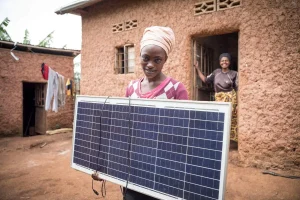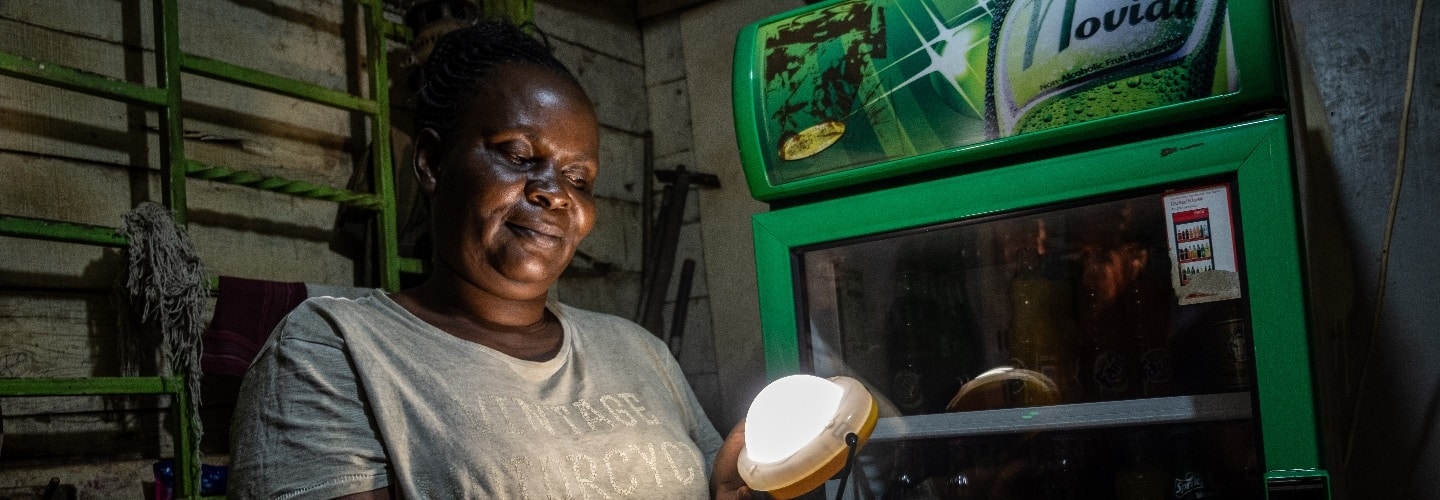By Sheila Oparaocha
In the energy transition discussions, the mainstream narrative assumes that people already have access to energy and that the deployment of large-scale renewable energy projects is the fastest pathway to achieve the net zero by 2050 goal. While this approach is relevant, it fails to take into consideration the reality. This reality is that when we consider the combination of electricity and reliance on harmful cooking fuels, over 2.9 billion people, nearly one in three individuals on this planet, lack access to energy.
If we deconstruct these numbers further, we find that 77% of those lacking energy access live in poor communities on the African continent. Moreover, a significant portion of them are women. So for our energy transition to be just and inclusive, it must adopt a “leaving no one behind” approach. This means prioritizing universal access to reliable, affordable and sustainable energy to support livelihoods, climate change adaptation and resilience building.
Gender-just solutions
For example, providing off-grid energy solutions like solar home systems and mini-grids to women farmers, who produce up to 80% of food in developing countries. Sustainable renewable energy solutions like these can power irrigation systems and agricultural equipment, and even process farm produce. This would also help users adapt to climate change challenges like water shortages and to reduce their reliance on expensive diesel generators.
Another crucial aspect of “leaving no one behind” is supporting women-led businesses in local communities where commercial distribution networks are inadequate or non-existent. They could operate energy access services like solar charging stations, energy kiosks, and community-based microgrids to provide a reliable energy supply to underserved areas. ENERGIA, Solar Sister, and Frontier Markets have collectively supported 42,000 women entrepreneurs who provide energy access to approximately 10 million consumers in last-mile communities. This demonstrates that women-led businesses can deliver tangible results and impact at scale.
In addition, a just and inclusive energy transition means fostering an enabling policy and market environment for gender equality in the energy transition through advocacy and connecting the right stakeholders and parties. It means taking the extra step to guide women entrepreneurs through the process of becoming registered grassroots associations. And then training them to collectively strategize, participate in and influence energy decision-making spaces that shape the policy and regulatory environment in which they operate.
Funding is lagging behind
However, even though these solutions do exist, the main challenge to scaling them up is the lack of political will and appropriate finance. The mid-way review of SDG7 during the recent United Nations High Level Political Forum noted that international public financial flows to developing countries to support clean energy had decreased for the third year running. Research done by SEforAll, Climate Policy Initiative in 2021 show that only 6% of climate finance for energy goes to energy access solutions, and only 13% of all energy sector development finance is tagged for gender equality in 2019. Clearly, if we want to deliver a just and inclusive energy transition, we need governments and international financial institutions to step up their commitment and address this funding crisis.
Criteria for a gender-just energy transition

While a comprehensive framework for a gender-just energy transition does not yet exist, ENERGIA has identified four key elements that need to be considered for its advancement.
- Ending energy poverty by focusing on women’s increased access to and control over sustainable energy products and services. This includes empowering women with off-grid energy solutions that enable them to adapt and build resilience to climate change, while also facilitating their pursuit of prosperity and wealth creation.
- Increasing gender-responsive investment and financing. This entails directing resources towards gender networks and organizations, as well as women’s groups that actively work towards achieving sustainable energy access and promoting gender equality.
- Providing equal opportunities for women to advance as leaders in the energy sector. This requires creating pathways for women to excel individually and collectively, ensuring that their voices are heard and considered in energy decision-making processes.
- Employing gender justice as an accountability framework. This involves mandating the collection of sex-disaggregated data and monitoring gender-specific key performance indicators (KPIs) in all energy and climate transition interventions. By effectively tracking and reporting on these indicators, progress can be measured, gaps can be identified, and stakeholders can be held accountable for achieving gender equality impacts.







